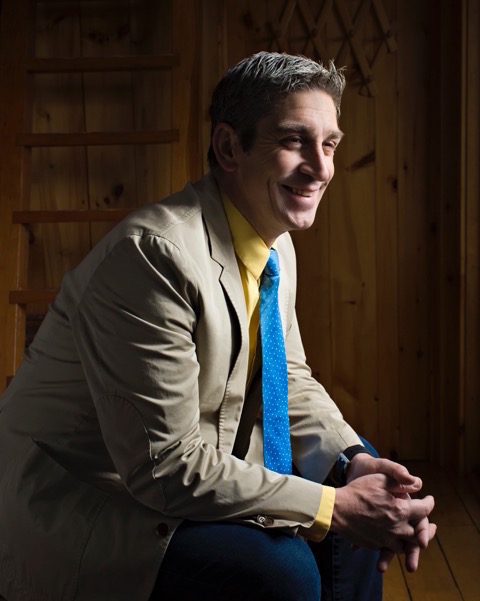
January 18, 2024 | Paul Richardson

None of us is just one thing. We are each melting pots of culture, upbringing, race, education, life experience, trauma… and on and on that have been ad-mixed into us. We all defy easy or simple classification.
Yet humans have an inexplicable inclination to define other humans as friend or foe, domestic or foreign, like or unlike. Perhaps because labels give us easy handles with which to grasp who or what someone should or should not mean to us.
So, when Richard Blanco was plucked from Florida shores to become the youngest ever Inaugural Poet, as well as the first Latino, and the first homosexual to fill that role, he not only had very big shoes to fill (Maya Angelou, Robert Frost, Elizabeth Alexander), but multiple labels to answer for.
(In fact, there have only ever been six inaugural poets – and 45 presidents. President Obama at the time said he picked Branco because his “deeply personal poems are rooted in the idea of what it means to be an American.”)
But the only label that really mattered on that cold January day was “poet.” And, in response, Blanco delivered a beautiful poem (“One Today”) that celebrated the singular spirit and experience – “all of us, as vital as the one light we move through” – that binds every American under our shining sun. As all of Branco’s poetry, it was packed with rich, symbolic imagery and powerful turns of phrase.
The New York Times once summarized Blanco’s biography rather poetically: “Mr. Blanco… was conceived in Cuba, born in Spain and raised and educated in Miami, where his mother was a bank teller, his father a bookkeeper, and his grandmother — ‘abuela’ in his poems — was a looming, powerful presence.”
Educated as an engineer (because his family gave him just three career choices: doctor, lawyer, or engineer), Blanco designed bridges and roads, but soon began questioning his life choices, and turned to writing to express himself. He went back to school and got a master’s in fine arts and creative writing at FIU.
His first collection of poetry, “City of a Hundred Fires,” took the 1997 Agnes Lynch Starrett Poetry Prize, a prestigious literary award for a first full-length book of poetry. Teaching offers and work in academia followed, though his work in engineering continued for another decade or so.
Multiple collections of poems and two memoirs followed that. As did a play and a musical.
Throughout all of his work, Blanco has said he explores the universal questions we ask ourselves: “Where am I from? Where do I belong? Who am I in this world?” And he answers with poems that are brimming with vivid phrases that, if, unceremoniously plucked from their proper context, still read like haikus or wise pearls:
love can be simple
as a mother remembering to pack sodas and sandwiches
…
I’m not the one
I’ve curated on Instagram
…
I should still be eight years old
dazzled by seashells and how many seconds
I hold my breath underwater
…
the bare oaks
branching into the sky like nerve endings
inches away from the frozen stars
…
Some days
the sun is a dollop of honey and raining
light on the sea glinting diamond dust
…
Mortar mixed thick with anger, each brick laid
heavy with revenge
…
if
I could choose eternity, it would be here:
aging with the moon, enduring in the space
between every grain of sand, in the cusp
of every wave and every seashell’s hollow.
…
the dissected flesh of the fruit
slithering like molten gold through our fingers
Richard Blanco is many things: author, poet, playright, recipient of 2021 National Humanities Medal, professor, Woodrow Wilson Fellow, Education Ambassador for The Academy of American Poets, Poet Laureate of Miami-Dade County, Cuban-American, Floridian, Down-Easter. And he will bring all of these things in the melting pot that is himself when he reads and speaks, as part of Festival Boca’s Authors & Ideas series, on March 7.
Buy books by Festival authors, past and present, at our Festival Bookshop on bookshop.org and not only do you support independent booksellers, but help Festival Boca, which gets a modest commission on all referred sales.